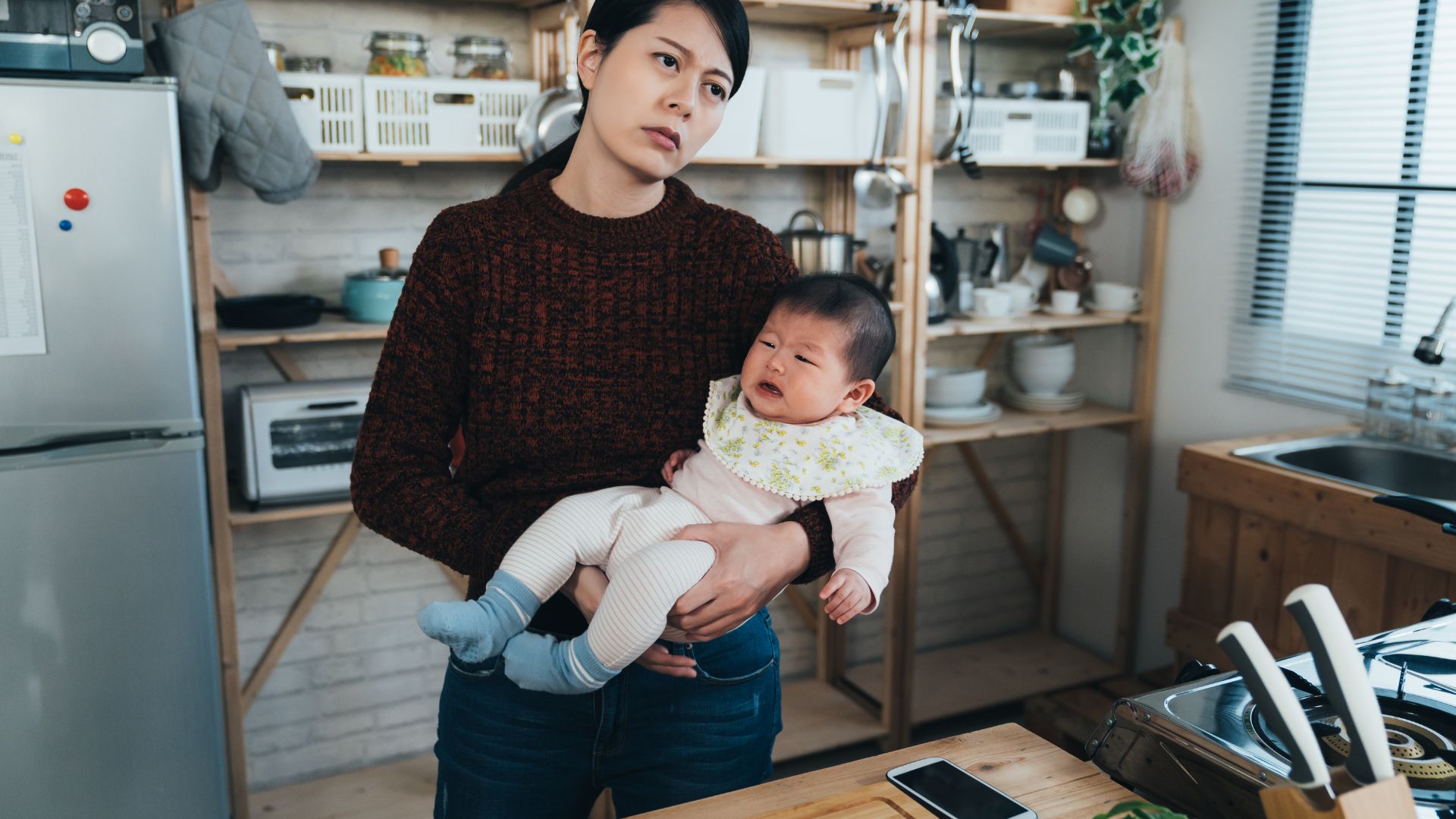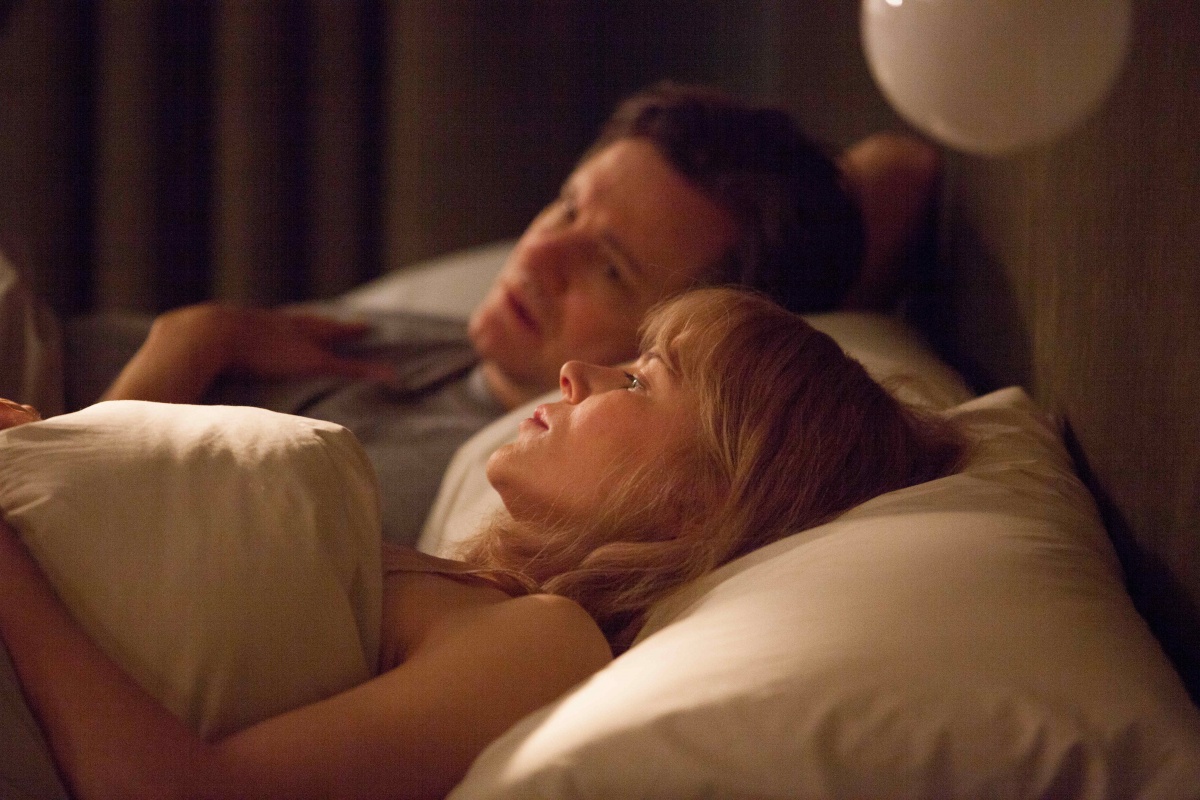“So, when are you going to give him a little brother or sister?” »
Here is THE most frequent question asked by my relatives, my friends, the pediatrician, the school principal, the unknown elderly woman I met on the bus and the baker.
This question, innocent for those who ask it, nevertheless has the gift of shocking me and making me extremely nervous. But let’s put this anger into context a bit, if you will.
My first pregnancy, far from being a pleasure
I have a four-year-old daughter (and a half, that counts), who I had no trouble having. I know I’m lucky, because there are many people who long to have a child and struggle.
For my part, once the machine was launched, I had a fairly simple and uneventful pregnancy, even if I particularly hated this period. Made of constraints, annoying and honeyed attentions that were nevertheless initially kind (I couldn’t bear to be seen differently because I was pregnant), these nine months seemed endless to me, even if, biologically speaking, everything was fine.
The birth, for its part, was a massacre. Very long labor, double epidural application, emergency c-section and bleeding, it wasn’t much fun.
All of this was quickly swept away by the enormous tsunami of particularly harsh postpartum depression, from which it took me months, even years, to recover. Even today I am not sure that in motherhood I have found all the fullness and serenity that I was promised.
I hardly recognize myself among happy mothers, my traumas are always very present, beneath the surface, most of the time happily calmed by my daughter’s feat or one of her magnificent smiles. Luckily otherwise it would have been a long time since I took her back to the maternity ward and asked for a refund, don’t joke.
For me, the first steps into motherhood were chaotic, so when I hear people ask me with a smile when I plan to make my daughter a big sister, I have to grit my teeth very hard to avoid sending harsh jokes and words into my head. of all those who dare to ask me the question.
The injunction on motherhood, this plague
You might think, once we enter the “sweet” world of parenthood, that we will let go of our ovaries a little and stop worrying about our ability to support the country’s demographics. Well no, for some obviously one child is not enough, we need to return to normality and have a second, and soon, please.
We usually hear phrases like: “there shouldn’t be too much age difference with the eldest” or “even if it means wearing diapers, you might as well do it quickly so as not to lose control” . There are also those who try to make us feel guilty by explaining that if we don’t have a second child, the first one will be bored, poor thing. Do we want our child, once an adult, to bury us alone? Do we really want to let our child live alone in this world, when we as parents are no longer here? And then having only one child makes him capricious, makes him “a child king”, so you have to immediately take a “little second”.
Here is a summary of the poorly concealed blaming injunctions that I often hear, when I express the hypothetical idea of having only one, “only” child.
According to these people who are (more or less) close to me, I should immediately start making a little brother or sister for my daughter, to make her a tailor-made playmate and a shoulder to lean on when my husband and my son have decided to move forward. A bit like a golden retriever, but less hairy.
Nice, the pressure. Pressure for my daughter, for the hypothetical second child (what if they don’t get along?) and then for us parents.
I don’t see when we will be able to be calm in the face of all this. I who thought that by responding to the social demand of having a child (without even being forced to do so, I wanted to be a mother, I remind you), I would no longer be subject to injunctions on my body’s reproductive capacity of children, was very naive.
The model of families with two children is a minority one
However, the classic “two parents, two children” model, often presented as the “ideal family”, is not prevalent in France. This is how Vanessa Girard, an urban planner and specialist in demographic and social issues in Brest, explains:
“Families with only one child represent 45% of families, compared to 39% of those with two children, and 17% with three or more children. And this is without going into the details of mixed families or single-parent families. »
So why is the company so insistent on restarting the machine to produce the famous little brother or sister? The activist and specialist in the fight against maternal injunctions, the brilliant Fiona Schmidt, has her opinion on the matter:
“The norm has nothing to do with a simple arithmetic mean: the norm is not “the majority of people”, it is a social construction that varies in space and time, and which constitutes itself as a model.
In the mainstream culture that shapes our representations, in advertising, television series, cinema, etc., the model of the French family is a straight, young, white, able-bodied, thin CSP+ family with two children. And by dint of being omnipresent, this model becomes the norm, and everything that deviates from it becomes “abnormal”, even if it is the majority! »
The author of the book Let go of the womb he adds, giving a completely applicable example:
“Size 36 is not the norm, given that only 4% of women actually wear a size 36. But seeing only women wearing size 36 in public spaces, we are convinced that only size 36 was socially valid: it is the same principle. »
Clearly, we will never be left alone, truly.
The injunction on motherhood does not stop after the first child
Even after having two children we continue to put pressure on our uterus, explains Fiona Schmidt:
“These injunctions apply to the second child, systematically, and sometimes to the third child, when the couple has not had what we continue to call “the king’s choice”, that is, let’s say a child of each sex (we note in passing the same nature misogynistic of this common expression, which is based on the idea that a man can decide the sex of his child, and that this makes him a superior father to others).
The choice to have only one child is a little less taboo than the choice not to have any at all, but the common point is that we systematically take for granted that it is a default choice, not an enlightened and serene choice, and above all , a bad choice. »
Regarding the more or less absurd reflections that can be heard regarding the poor only child who does not know the joy of sharing his sweets with his brother or sister, the author and activist explains:
«The myth of the capricious, spoiled and unhappy only child still dies hard, which is once again absurd: it’s not that children aren’t socialized younger and younger, or that they don’t have the chance to spend time with other children outside the house. the first family club! »
But to what extent does society believe mothers have “done their job”?
According to the author there are no more ordinances from the 3rd child. She tells us:
Having a fourth child, or even a third when you already have “the king’s choice”, is instead suspicious and socially little considered. Mothers of so-called large families still suffer from class prejudices, sometimes associated with racist prejudices, which have not changed for decades.
So the injunction on motherhood calms down starting from the second child, but this does not mean that social pressure decreases, because the care and education of children are extremely standardized, and therefore scrutinized. And since parenting is considered the responsibility of mothers, they are the ones who bear most of the pressure related to their children. »
Concretely, whatever we do, we always make mistakes.
“So, when is the little brother due?” » or how to answer this unpleasant question
Depending on my level of tiredness, my tiredness or my mood of the day, the answers I can give to people who are a little too interested in my private life vary.
It can range from a simple smile, allowing my interlocutor to freely interpret my response, to a purely gratuitous and venerating jab asking him to more or less kindly look away if I’m there.
Obviously, depending on the person in front of me, I adapt. I won’t tell the principal at my daughter’s school that he’s ruining me with her stupid questions or advise my mother-in-law to touch her butt instead of worrying about what’s going on in my uterus. I didn’t grow up under a rock, I still know how to fix things, even though I sometimes imagine a very different answer in my head.
Fiona Schmidt gives me some ideas that I share with you (it’s altruism), to help you answer those who ask you the question, in case you find yourself, like me, faced with people who are all too curious:
“You can say “because I am/we are very happy like this”, with a big smile. Naturally this argument, however unstoppable, will not be enough, so a fairly effective solution is to respond to those who insist (because they will insist…) with a question rather than an explanation: “Why do you care?” so much so that I have a second child when I told you I was happy like this? What worries you so much? How might my choice affect your life? »
Believe me, whatever explanation you give regarding a lifestyle choice, your interlocutors will not be convinced and will try to convince you that their lifestyle is good. Better: keep your energy, don’t justify yourself. Never, under any circumstances. »
Exactly, let’s keep our energy and not justify ourselves. And then let go of the cluster, the uterus, the ovaries and the whole body, if you want, okay? Thanks x.
More articles on
Desire for a child
-
“So, when are you doing it little brother?” ” Shut up !
-
How to mourn the loss of another child?
-
The government launches a campaign to combat sexual violence against children, the first in 20 years
-
People without children represent 27% of the population and this study aimed to get to know them better
-
“Do you want children? »: what to answer to this (fart) question in a job interview
Do you like our articles? You’ll love our newsletters! Sign up for free on this page.
Source: Madmoizelle
Mary Crossley is an author at “The Fashion Vibes”. She is a seasoned journalist who is dedicated to delivering the latest news to her readers. With a keen sense of what’s important, Mary covers a wide range of topics, from politics to lifestyle and everything in between.





